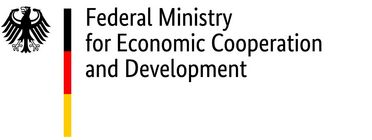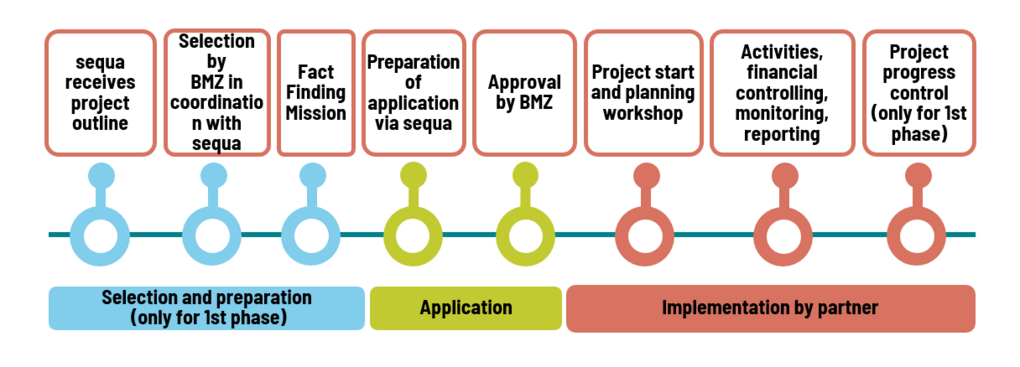

Trade Union Partnerships
The BMZ has restructured its offer for cooperation with the private sector. From now on, German trade unions can receive funding through sequa for the implementation of their own partnership projects with trade union organisations in BMZ partner countries.
In this way, the BMZ emphasises the comprehensive partnership between business and development for the common goal of socio-ecological change in the partner countries. The know-how and extensive experience of German trade unions are to be mobilised for this purpose. Trade Union Partnerships serve the exchange of experience as well as partnership-based advice and support, e.g. for the creation of good and high-quality employment, sustainable and fair economic development and the strengthening of economic participation, especially of women.
Within the framework of the Trade Union Partnerships, German trade unions act as project executing agencies and implement projects independently. They work closely with their local partners, and project goals and measures are planned and implemented together. Employees of the German partner as well as other German and international experts are deployed. Typical focal points of the cooperation are:
- Improving internal structures and processes at the project partner
- Development of new services for employees
- Supporting interest representation for better framework conditions
Analogous to the programmes of the Business Membership Organization Partnerships (KVP) as well as Vocational Training Partnerships (BBP), the promotion of Trade Union Partnerships is carried out by sequa. This means that sequa is responsible to the BMZ for programme management, including content and financial documentation. For this purpose, sequa works closely with the project executing agencies and supports and accompanies them throughout the entire period from the idea to the final reporting of a project.
The Trade Union Partnerships Program is an offer of the Federal Ministry for Economic Cooperation and Development's (BMZ) cooperation with economic actors under the umbrella brand Partners in Transformation (German only).

Process and implementation
German trade unions can propose projects. As a rule, they already have contacts in the partner country and have developed a project idea together with local partners. They prepare a project outline and send it to sequa.
From the totality of all available outlines, the BMZ regularly decides which proposals are selected for review and further development. If this is the case, sequa organises a review mission to the partner country with the participation of the German partner and an external reviewer. The appraisal serves to comprehensively assess and plan the project and makes recommendations for the project design (partner constellation, impacts, hierarchy of objectives, activities, indicators, etc.).
If a project is recommended, sequa submits a funding application to the BMZ. After approval, the German project partner receives funding for the implementation of the project according to the objectives and measures stated in the application. The duration of the project is usually up to three years. After a successful project progress review at the end of the first project phase, it is possible to apply for a further phase of up to three years.
The German project partner is responsible for the technical management of the project implementation and uses its own staff as well as external staff for long-term and short-term assignments for coordination, advice and training on site. In addition to advisory services and training, support in the form of material resources, study and delegation trips as well as public relations work can also be part of project cooperation.




